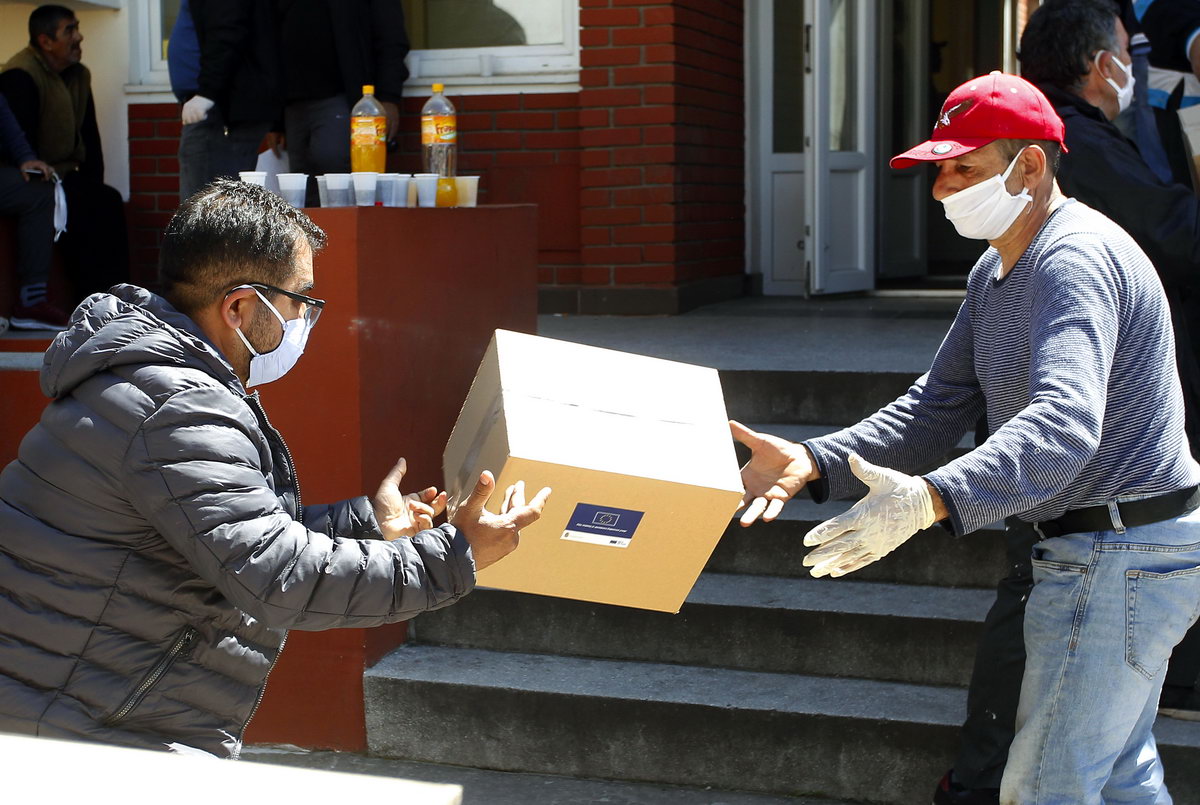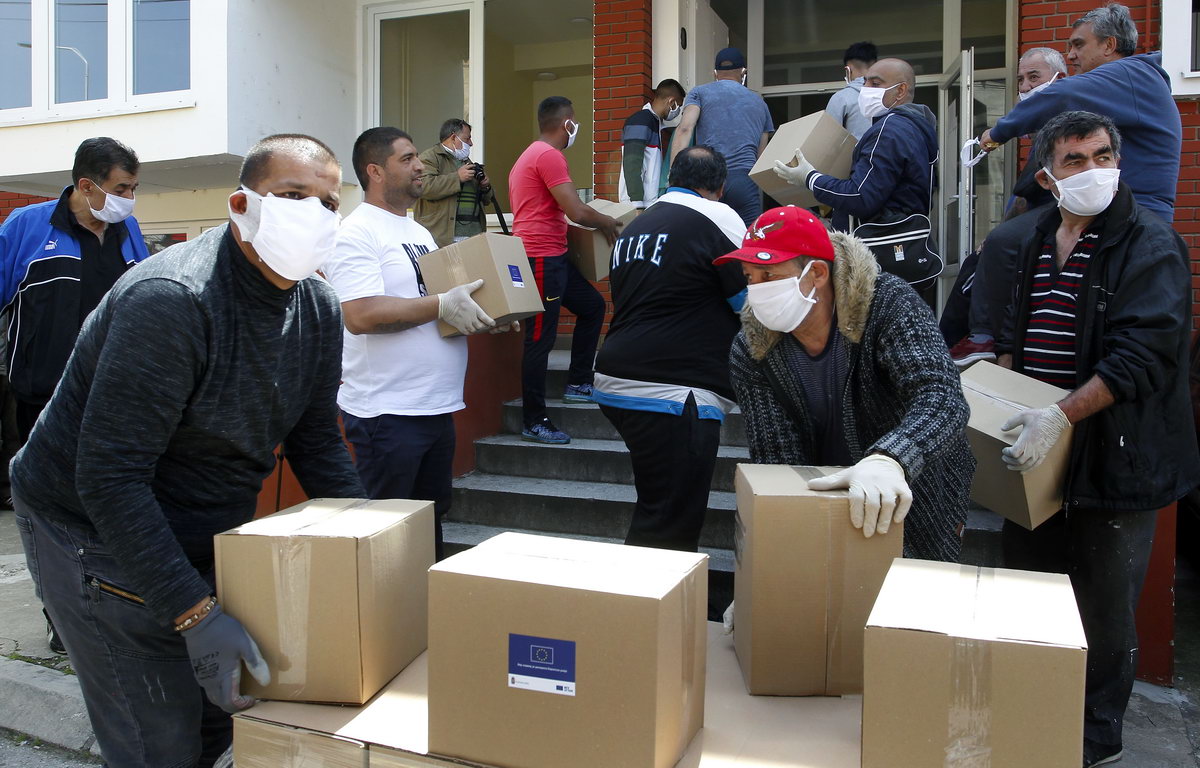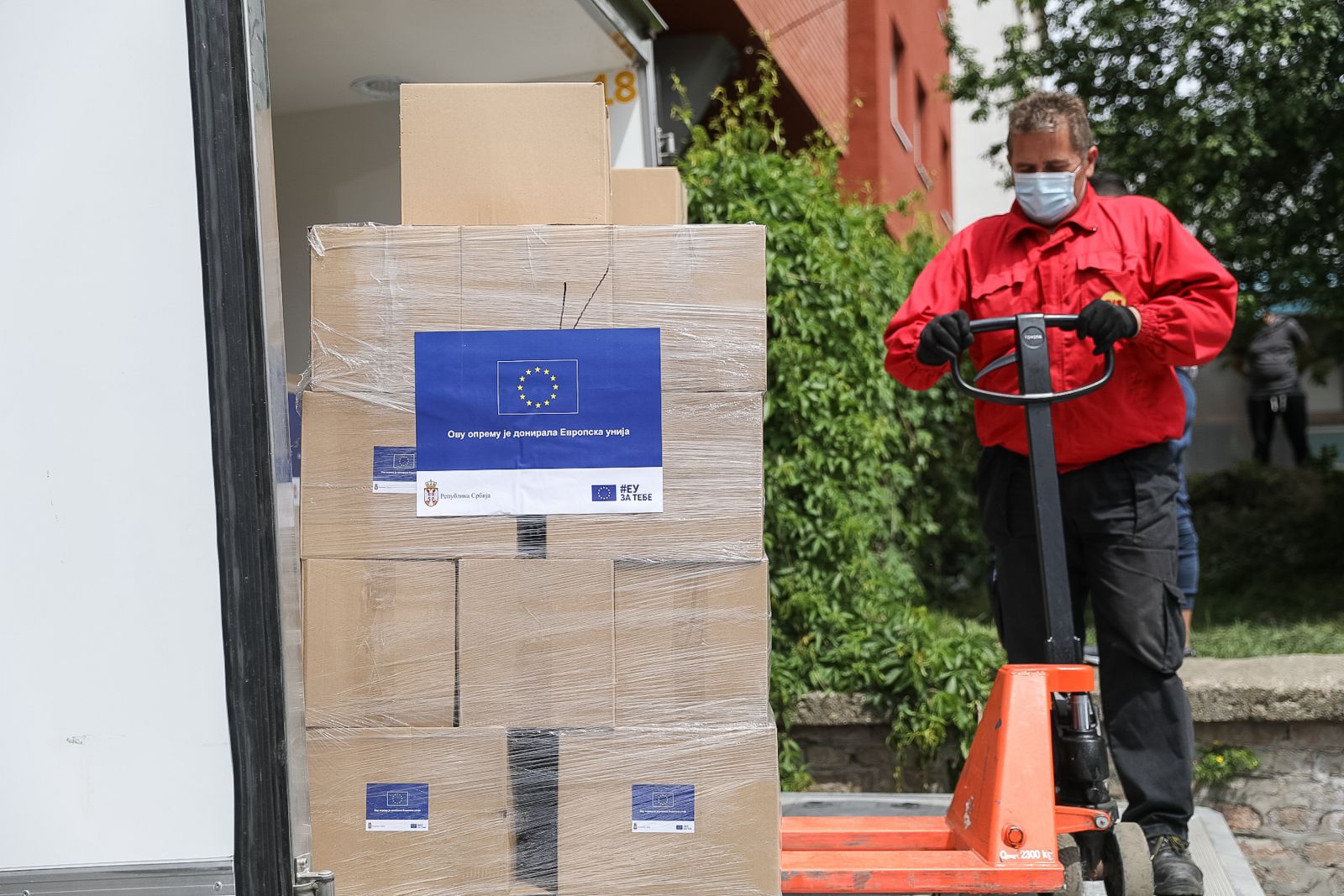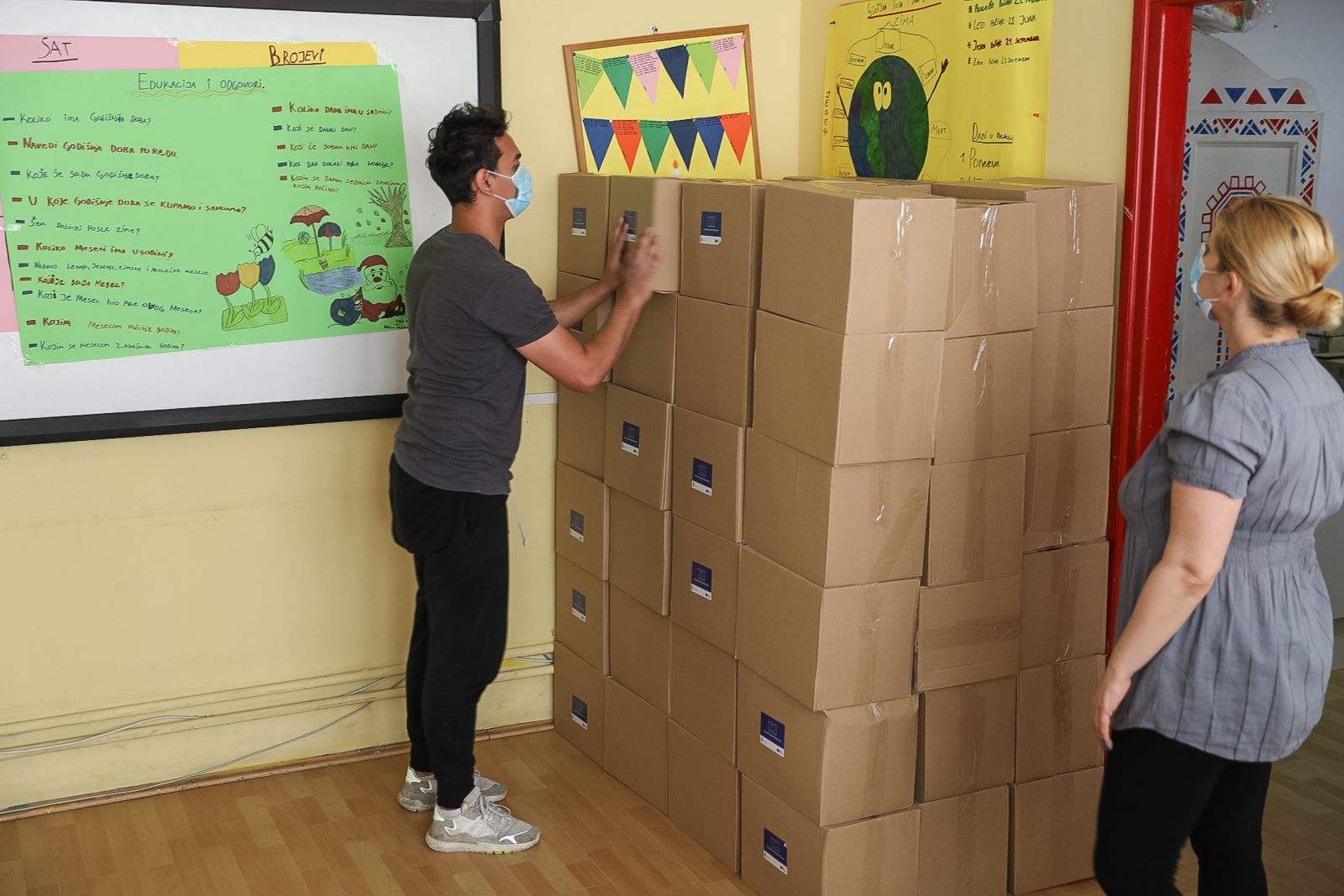
EU Support in Hygiene and Food Products for Roma Families
Almost 1,000 Roma families with more than 5,000 members living in Belgrade, Valjevo, Nis and Subotica have so far received packages from the European Union with food and hygiene products. The assistance that the EU continuously provides to vulnerable communities, even during the coronavirus pandemic, will continue in the coming days, and after the previous 1,000, another 375 packages will be delivered to the communities in Lebane, Vranje, Nis, Subotica and Valjevo.
This activity is carried out in cooperation with the Ministry of European Integration, the Ministry of Construction, Transport and Infrastructure, the Ministry of Labour, Employment, Veterans and Social Affairs, as well as the Social Inclusion and Poverty Reduction Team of the Government of the Republic of Serbia (SIPRU) and local crisis teams in order to ensure that aid reaches the most vulnerable citizens. The procurement and distribution of assistance itself is carried out by the United Nations Office for Project Services (UNOPS).

We very much appreciate the support we have received as a country from our international partners, and without which we would not have been so successful in dealing with all the challenges posed to our health system and the entire society by the COVID-19 epidemic.
"In crisis situations, it is important to pay special attention to the needs of those members of society who belong to vulnerable groups. Thanks to the EU and UNOPS for their support in these difficult times for Serbia, and I expect that we will continue to work together to improve the position of Roma women and men in the Republic of Serbia," said Zorana Mihajlovic, Serbian Deputy Prime Minister, Minister of Construction, Transport and Infrastructure. bodies for monitoring the implementation of the Strategy for Social Inclusion of Roma Men and Women in the Republic of Serbia.
Crises like the one caused by the spread of the COVID-19 virus affect our most vulnerable fellow citizens the most, and that is why it is necessary to support them especially when it is most needed. We strive to show solidarity with all vulnerable groups of citizens and this support in food and hygiene packages, which will reach more than 6,500 members of the Roma community, is part of the total support we provide in Serbia with EU financial assistance,
said Jadranka Joksimovic, Minister for European Integration and the National IPA Coordinator.

As part of its global response to the current pandemic, the European Union has determined initial support to Serbia of 93 million euros for both urgent and short-term and medium-term measures in repairing health, economic and social consequences caused by the crisis.
In these difficult times we must stand together and protect the most vulnerable, more than ever. As part of the EU support package for Serbia for COVID-19, 200.000 EUR were spent to help vulnerable communities and people in Serbia. Through this funding the EU Delegation helped around 1,000 Roma families with more than 5,000 members in four Serbian towns.
"It also provided assistance to 14.000 women and elderly people in 50 remote municipalities of Serbia. All these people were particularly vulnerable during the crisis on top of the health risks common to all of us because of the COVID 19. The EU will continue to help them all. None of them must be left behind', said Sem Fabrizi, Head of the EU Delegation to Serbia.
Assistance packages for the Roma community were delivered with the support of four civil society organizations: Center for Integration of Youth from Belgrade, Association of Coordinators for Roma Issues from Valjevo, Roma League from Nis and Roma Education Center from Subotica.

Osman Balić, President of the Standing Conference of Roma Citizens' Associations (SKRUG) - Roma League from Niš said that although the whole society is affected by the Covid-19 virus pandemic, the Roma community is additionally endangered because almost 70 percent of the Roma population works in the informal sector, making their living by collecting secondary raw materials.
"During the month and a half of the state of emergency, they were mostly without income, so we especially thank the EU for this generous help," said Balić.